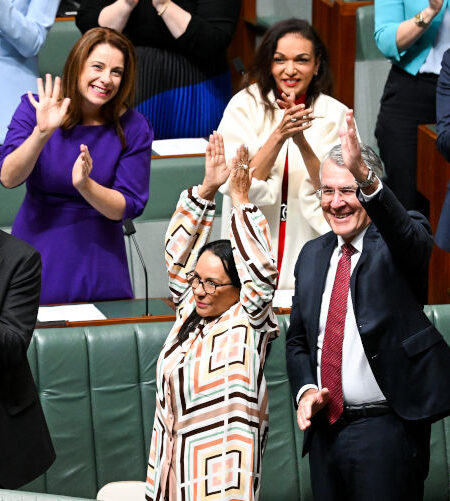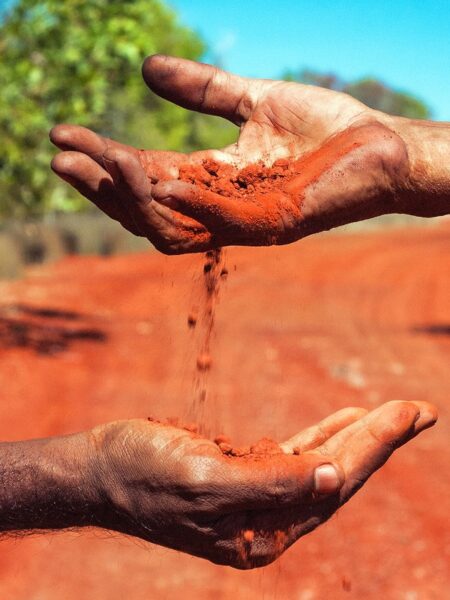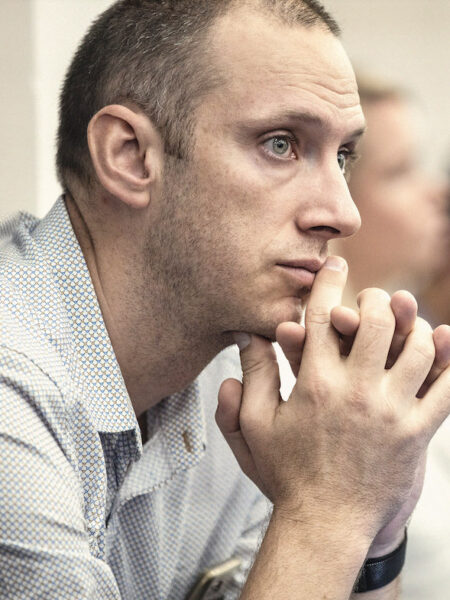I was reminded of this over the last few weeks as I was listening to the interviews on Richard Fidler’s (and his fellow interviewer/hosts Sarah Konowski and Wesley Enoch) Conversations with some prominent First Nations leaders such as Quandamooka woman, Dr Valerie Cooms, Gangulu man Mick Gooda and Cobbie Cobbie woman, Professor Megan Davis.
From the day they are born, Blackfellas in Australia are forced by historical, judicial and political realities to quickly understand that the game is rigged, and not in their favour.
There is very little naivety in Aboriginal and Torres Strait Islander communities. They can’t afford the luxury. Systemic racism in the bureaucracies; overt racism in the workplaces, sporting fields, and the open sewers that are online comments sections; the dispossession, and the intergenerational trauma. The wisdom and discernment that comes from hard fought experience makes First Nations Peoples in Australia amongst the most politically aware and astute communities in the country.
So what does this mean? The most human response would be to become cynical to the point of complete disengagement. What is the point of participating in the systems that so obviously fail you? And yet, time and time again we see that this isn’t the response of Aboriginal and Torres Strait Islander peoples.
It is incredible that Aboriginal and Torres Strait Islander peoples still have patience and a level of faith in their fellow Australians that we are yet to, collectively and comprehensively honour, or respond to in a way that captures our empathy and desire for something better. There are signs that, despite the persisting failures of non-Indigenous dominated ‘governance’ and the deficit and negativity that it creates; the person to person, community to community feeling, is a foundation to build something better. The 2021 State of Reconciliation Report noted that:
Ninety-five per cent of Aboriginal and Torres Strait Islander people and 91% of Australians in the general community feel our relationship [with each other] is important.
These are encouraging figures. Despite the cynicism of our political leaders in believing that they can manipulate community division for political gain, for the vast majority of Australians, both First Nations and non-Indigenous peoples, our relationships with each other are important.
Too often, our political representatives bank on the indifference of the public to issues of truth and reconciliation. Australia’s history since colonisation has so often been about providing ‘implausible’ deniability about the impacts of that colonisation upon the First Nations Peoples of Australia. Unlike Blackfellas, non-Indigenous Australians all too often express their disinterest and non-engagement with the big political issues. We allow our politicians to act against our consensus positions on reconciliation and good relations because we aren’t engaged enough to hold them to account. Rather than clever scepticism, it becomes destructive naivety.
It has been encouraging to see the overwhelmingly positive public response in Victoria and around the continent to the establishment of the Yoo-rrook Justice Commission, to lead an Australian first truth-telling process in parallel with the Treaty process already underway in that State. Some of the State governments are starting to realise that, rather than being political kryptonite, taking meaningful actions towards reconciliation with Aboriginal and Torres Strait Islander peoples in their jurisdictions is popular and embraced by most of the electorate.
One of the senior Indigenous stakeholders interviewed for the State of Reconciliation Report is quoted saying that:
Reconciliation is two parties coming together, not just the blackfellas talking about it. It is about the action of reconciliation as opposed to the concept itself.
In one sense it is about the conscience of the nation. It’s the place that can bring Australia together.
The answer to a good conscience, reconciliation must be enlivened by actions that honour the desire of the Australian people to address the past. It is the parties coming together.
Which brings me to the impending Federal election, scheduled for some time in the next nine months. Australians have a three-yearly opportunity, as a Commonwealth of peoples, to vote on our values rather than a false self-interest. Rather than approaching the election with the comforting but deceitful simplicity of ‘a pox on both your houses’, a big part of non-Indigenous Australia doing their bit is to properly consider what type of Parliament, what type of Government, will deliver on our desire for reconciliation? It is in our voting that we move from desire to demand.
In Mark McKenna’s recent book, Return to Uluru, in reference to the Uluru Statement from the Heart, he writes:
By issuing the statement’s three demands – ‘Voice, Treaty and Truth’ – at Uluru, the nation’s Indigenous leaders not only confirmed it as the country’s spiritual and emotional ‘centre’, they also married Uluru and its myriad associations for black and white alike with poetic constitutional language, the kind of language that is so glaringly absent from the Australian constitution. Uluru now named a sacred text as well as a sacred place. In this potentially nation-defining moment, it became what Canberra had never been: the spiritual centre of the Commonwealth.
The Uluru Statement from the Heart continues to articulate the hope, faith and way forward for true reconciliation in Australia. While Canberra can’t claim to be our spiritual centre, for now it is the place of opportunity for a politics that brings unity, that honours the invitation to ‘walk together’.
Naivety, indifference and cynicism are no excuse, they only work to make us complicit.




